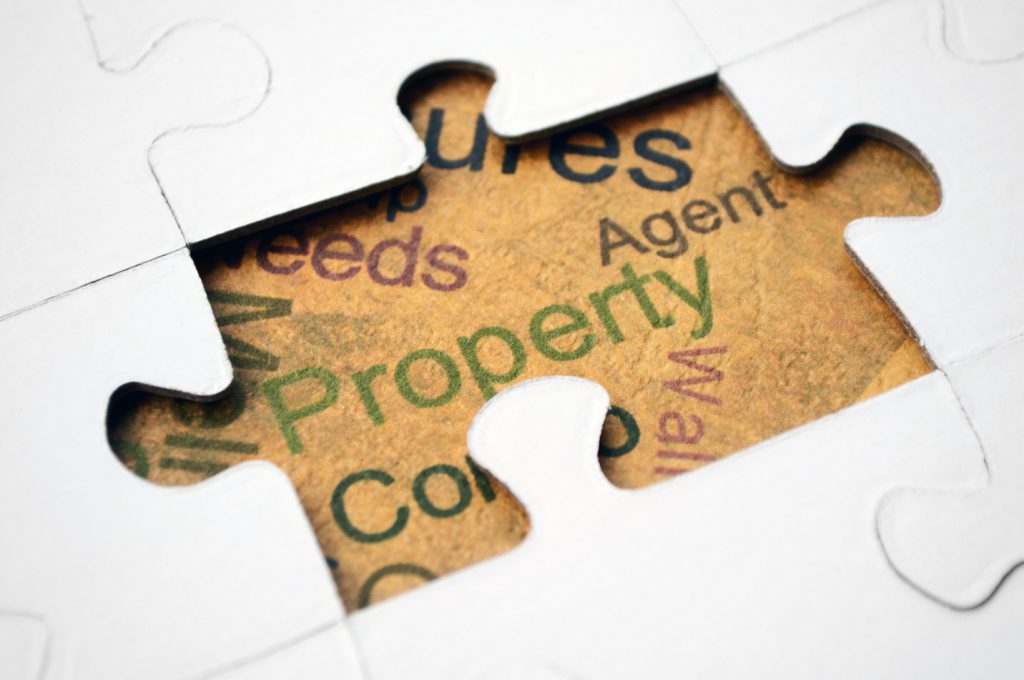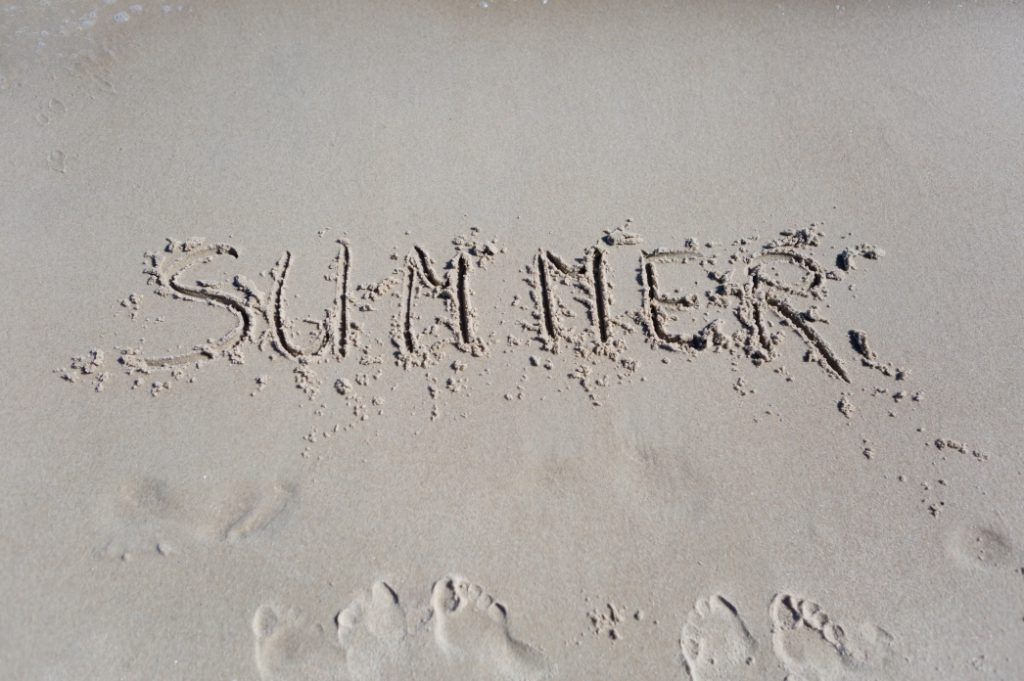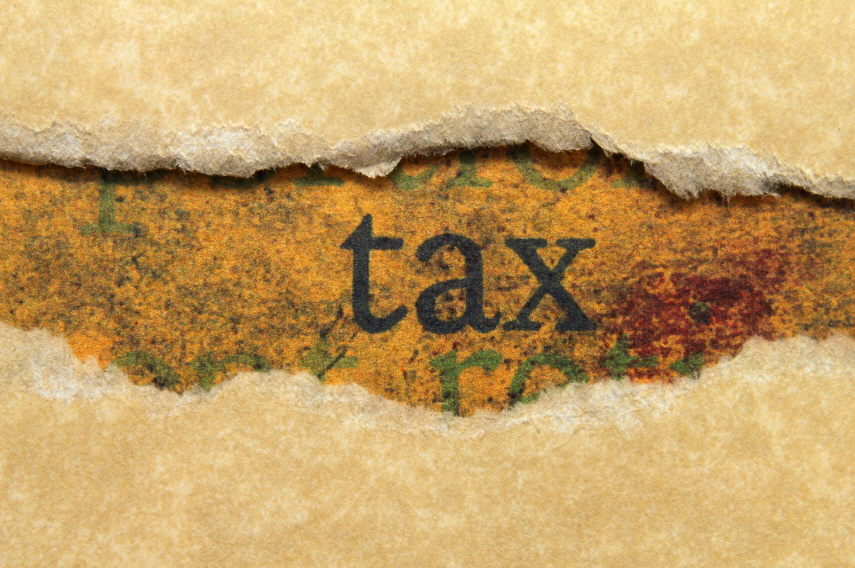Tag Archives: home for rent
6 Home Improvement Flubs That Cause Inspection Headaches

Do-it-yourself household projects have become increasingly popular, but home inspectors are finding a host of safety problems caused by overconfident home owners seeking shortcuts. “Home owners now see these DIY TV shows, which make these household remodeling projects look easy. They can go to a big box store and easily get the materials too,” says Randy Sipe, president of the American Society of Home Inspectors in Spring Hill, Kansas. “They think: ‘How hard can it be?’” Howard Pegelow, a home inspector in Arizona and Wisconsin, says home safety is a top priority in his inspections. He looks for loose carpeting, uneven steps, and water temperature extremes, among other common risk factors. Here are additional concerns noted by Pegelow, Sipe, and others in the field:
Wobbly decks
Look for: insecurely attached railings and wobbling or improperly sized posts.
“Decks shouldn’t move,” says Scott Patterson, an inspector with Trace Inspections in the Nashville area. Wood decks can collapse if they’re not properly attached to the house or if they rely on the house too much for support. “Fasteners can corrode, which could result in failure of the deck. Many times owners are unaware all these problems exist,” Sipe adds.
Incorrectly removed walls
Look for: sagging roofs and ceilings.
Open floor plans are appealing, but not when they overlook structural issues, which can happen when home owners fail to identify load-bearing walls. Pay attention to the age of a home, Patterson says. In newer construction, homes tend to have greater side support, which can accommodate open floor plans. Older homes relied more on the center for stability, which can mean trouble for amateur wall-busters.
DIY plumbing
Look for: wrong pipes used for connections.
A common error Patterson sees in plumbing jobs comes from home owners who purchase a sink and cabinet from a big-box store and handle the installation themselves. Using the wrong pipes often results in costly water damage. Patterson says he commonly sees flexible, accordion-shaped pipe under the sink for the drain, even though they do not comply with residential plumbing codes. Pipes should be smooth and unridged to prevent clogs or waste buildup.
Missing garage door sensors
Look for: sensors missing or not facing one another.
Garage doors can pose a big safety threat if improperly installed, Sipe says. The safety sensors must be connected and aligned correctly for the garage door to go down, and if it doesn’t, the owner may just uninstall them. Additionally, a poor connection could be the culprit of the sensor malfunction. Sipe says he often sees the safety cable being threaded incorrectly, which could cause it to break and send the garage door door crashing down.
Disarmed alarms
Look for: missing batteries or disconnected alarms.
Home inspectors aren’t always required to test smoke and carbon monoxide detectors, but many do. Municipalities often suggest installing them within 15 feet of the primary entrance to each sleeping room. Home owners often remove them if they start chirping or disconnect them to prevent false alarms as they cook. “Many times I’ll open it up and find the battery is gone,” Pegelow says. “That is a big safety concern.”
Faulty electrical
Watch for: exposed wiring and overloaded circuits.
Electrical problems often emerge when an addition has been made to a home, such as a basement or attic remodel. Home owners may add two wires to one circuit breaker where there should be only one. Or, Sipe says, he sees amateurs using a wire that’s too small in the breaker, which could pose a fire hazard.
Melissa Dittmann Tracey is a contributing editor for REALTOR® magazine. She can be reached at mtracey@realtors.org.

newstarrealty.com
Top 20 Questions to Ask Before Hiring a Property Manager

It takes a talented and unique skill set to be a professional property manager. Not everyone is cut out for it, but this article will help you tell the amateurs from the pros.
Property management is a complicated, fast-paced business, but generally speaking, there are some of the traits I see in successful property managers
- Pleasant, but firm
- Communicative, but not aggressive
- Detailed oriented, but not in the weeds
- Organized, but not obsessive
- Calm, but not seemingly apathetic
- Truthful, but does not overshare
- Is always learning, but is not arrogant
- and lastly, is passionate about real estate investing
Obviously, there’s more to being a successful manager, but I’m going to stop there. You see, most of the managers I’ve met only possess half of these traits (at best), and as such, it causes the business to struggle.
I’m not saying that they need to be perfect (I’m sure not!), but there needs to be a pursuit for something bigger and something greater. Managers who push themselves professionally towards these traits are the ones that will be able to keep your rental property occupied, meticulously maintained, and your tenants happy.
A good property manager is worth his or her weight in gold.
Top 20 Questions to Ask a Property Manager

Recently, the folks at Active Renter put together an in-depth guide to interviewing a property manager before you hire them. While I think 74 questions is a bit much (okay, way too much), the premise is solid.
With their permission, I’ve picked my top 20 questions to ask a property manager – which would still take 30 minutes or more to ask. In my opinion, these are the most important questions to ask a property manager that you are thinking about hiring.
1) What are the various services that you offer to your clients?
You want to make sure that you find a property management company that can market, lease, manage, and sell your property. It is also important to make sure that this company can provide top-notch maintenance, conduct inspections, and administer in-depth background checks.
2) How many rental units do you manage?
This will help you understand their size. Too few rental units and they are either inexperienced or have lost clients due to poor service. Too many rental units and you will get lost in the shuffle. Look for a property manager with 200 to 600 rental units. That’s when you’ve found your Goldilocks level of “just right.”
3) What experience does your company owner have in managing rentals?
Some company owners have never even managed a property. If the company owner has never managed a rental, what is the chance that he or she runs a company that can effectively help you with your investment property?
4) How do you determine rent amount?
A property manager should be able to complete a comparable market analysis of all the other available listings near your property. They should use properties that just went off the market and properties that are currently on the market to determine the highest possible rent. They should also have the expertise and experience needed to factor in the unique aspects of your rental property, like a pool or a new kitchen.
5) Are you currently an active real estate investor in your market?
The company’s leadership should be investing in the real estate market themselves. Period. If they don’t invest in your market then they lack the understanding they need to help you excel.
6) Under what conditions can I cancel my management contract?
Never get locked into a contract you can’t escape. Some companies will try to hold you captive with a contract and others will keep your business with great service. If a company is offering you an inescapable contract, it’s time to look elsewhere.
7) What are the management fees and/or pricing options when the property is being rented?
This question will help you understand your average monthly fee, if any. Some companies will offer a flat rate and others will offer a rate based on the rent amount. Others will offer 3 levels of pricing, which includes a lease only plan, standard plan, and a premium plan.
Again, you’re best off looking for a percentage of collected rents. This motivates your property manager to fill vacancies because they don’t get paid if you don’t have a tenant. It also motivates them to fight for higher rent amounts because this helps their bottom line too. Flat rate companies will get the same pay no matter what, so why would they be motivated to get you a higher rent?
8) Are their fees when the property has no tenants?
This is a very important question to ask for two reasons. One, many companies will offer a “flat rate,” which sounds great until your property is empty…and they still continue to charge you. If a company is taking money with the property empty, how motivated do you think they are to fill the vacancy?
9) What miscellaneous fees could I be charged for the management of my property?
Again, some companies will try to get you to sign because they offer a low rate. As the saying goes, if it is too good to be true, it probably is. Once you’ve signed, a company that seemed inexpensive will now charge you lots of extra fees. Remember, a property management company has to make money, so if they aren’t making money from the low monthly fee they will find another way to do it.
10) Do I have to sell my property with you if I want to list it?
Some property managers will ask you to sign a contract that forces you to sell the property with them. Don’t fall for this. A quality brokerage would never require this- but rather they would be available if you wanted to use their brokerage services.
11) Do you offer direct deposit for your owners?
Unless you’re living in Back to the Future and you’ve traveled to the 1800’s, your property manager should be able to deposit your check in your account. This saves you time and effort, which is the whole reason you hired them.
12) How do you collect rent from tenants?
Asking tenants to bring checks to an office is a lot like wearing acid washed jeans, it might have been okay in the 80’s, but the times have changed. If your property manager isn’t having your tenants pay online that is a red flag for two reasons. One, it slows down the speed at which you can get paid. Two, it makes it easier for tenants to miss paying the rent. If payment is online, tenants can automate their payment and these two problems are avoided.
13) Do you conduct property inspections and, if you do, what charge is associated with them?
Your property is at risk if your property manager doesn’t conduct inspections. This should require a small fee and it will be one of the best investments you can make. It ensures you catch problems before they spiral out of control.
14) Do you offer eviction warranty (also called a “screening guarantee”?
Some companies, such as ourselves, will offer eviction warranty. It is only a small fee, but it will give you major coverage should you need to evict a tenant.
15) What steps do you take to market properties?
Your property manager should be advertising properties through a variety of channels. If they are still just placing newspaper ads and hoping for the best then you should steer clear.
16) How long are your properties typically vacant?
The average vacancy time after a property is ready should be about 2-4 weeks. Any longer than this suggests the property manager is struggling to find tenants, any shorter than this suggests that your asking rent amount is too low and you might be leaving money on the table. Either of these scenarios is bad for you and your rental property.
17) What are your income and screening requirements for applicants?
If they don’t set a standard then how can they be sure this tenant will make rent? It should go without saying that a tenant needs to have enough income to pay the rent.
18) What control do I have over the tenant lease agreement?
Your property manager should give you some input into the lease agreement if there are one or two issues that are important to you. However, if you are putting in lots of additions, you should have just written it yourself. Make sure your prospective property manager is confident in the leases that they have written for tenants by asking this question.
19) Do you mark-up maintenance and repairs?
You need to make sure that a prospective property management company doesn’t make a profit any time they do maintenance. If they are willing to charge you for maintenance then your profits could greatly diminish.
20) How often will I get updates on my portfolio?
Just like payment statements, you should be able to get updates on your portfolio as often as you need them. Your properties are your business and to not offer updates as often as you want would be the equivalent of telling your property manager that they can’t check their email for a week. It is a situation that would guarantee failure.
Credit to Lucas Hall
Lucas is the Chief Landlordologist at Cozy. He has been a successful landlord for over 10 years, with dozens of happy tenants and a profitable income property portfolio.

nobody does it better
Getting and Staying Organized Through the Summer
Between vacations, BBQs, and pool parties, we can lose track of routines, projects and “stuff.”

Sometime about now in mid-summer we begin asking ourselves, “Why do things seem to be out of control? I planned on organizing my photos, painting that cute dresser I picked up at the yard sale last fall, and waking up without an alarm clock on Fridays. None of it has happened!”
This scenario is all too common — and yet there is good news. It’s never too late to get and stay organized for the remainder of the summer.
People tend to get busy with outdoor activities and become distracted by vacations, plus household schedules and routines tend to be different than during the school year. The most common areas that seem to spiral out of control are:
- Summer clutter
- Project procrastination
- Sleep routines
Here are my tips for getting and staying organized through the summer.
Summer clutter
We’re conditioned to create traditions and rituals. We buy new outdoor furniture and decorations for our backyard barbecue, and bring friends and family together for camping trips chock full of new-fangled gadgets and equipment. We have family reunions and summer vacations.
We’re used to buying, creating, and preparing for events — yet we don’t really have a method or system to deal with the aftermath.
It may be time to say goodbye to the stuff we buy “on the fly,” like walkie talkies for playful banter on road trips, floaties for the swimming pool, collapsible picnic tables for the beach, croquet sets for the backyard, and rain ponchos for the fast-moving and sudden rainstorm.
I recommend two steps for handling summer clutter:
- Collect all the summer clutter. Empty the souvenir bags, toiletry kits, suitcases, and backpacks. Get it all in one place.
- Evaluate it. I do this by using a value-based point system. Rate each item on a scale of 0 to 5. Zero means you have no real use for it in the future and don’t like it at all. Five means you really love the item and can use it, or it brings you great joy to keep it.
Project procrastination
Often we feel more disorganized or confused about our perceived “free time” during the summer months. This can happen because we spend the first half of the year postponing projects until summer vacation.
Each year we stack the projects-in-waiting for summer, and each year we seem to forget that we would really rather enjoy some time off in nature, traveling, or getting together with friends.
If you want to reduce the pressure for yourself, release yourself from too many good intentions, like repainting the powder room; reading the stack of books you’ve collected; and that wishful photo-organizing project.
Instead, pick just one project and focus on it. By making one project the priority, you can do little bits of it from time to time. So, instead of putting off the project and feeling badly that it isn’t getting done, break your priority project down into doing one small step per day.
Sample summer project
Want to paint that dresser? Allow yourself 13 “moments” to complete the project and never miss a bit of summer fun. Use this project breakdown to make any project fit in around your unpredictable summer schedule.
Painting a dresser purchased at a yard sale
- Take a “before” picture: 30 seconds
- Make a list of supplies needed: 5 minutes
- Buy paint and supplies: 1 hour
- Stage the area where you plan to paint: 15 minutes
- Pull the drawers out of the dresser: 3 minutes
- Remove the knobs from the drawers: 10 minutes
- Sand the dresser and drawers: 35 minutes
- Wipe down the dresser and drawers: 10 minutes
- Paint just a drawer or two (repeat): 30 minutes
- Paint the frame of the dresser: 1 hour
- Re-attach knobs: 20 minutes
- Move dresser to preferred location: 20 minutes
- Take picture and post for friends to see: 3 minutes
Sleep routines
Most of us realize instinctively that sleep is important.
“You know that babies and children need sleep to grow,” says Val Sgro, a professional organizer and author. “You know that an injured body heals itself faster with good sleep. You know that if you don’t get enough sleep, you become sluggish and cranky, and you have trouble thinking straight. That old saying, ‘I’ll sleep on it,’ comes from the realization that the solution to a problem often seems to reveal itself after a good night’s sleep.
“Contrary to common belief, your brain does not rest when you sleep,” she continues. “It is often more active than when you’re awake. It’s busy — busy making sure it stays organized.”

And therein lies the key to getting and staying organized in the summer months. Though our sleep routines will likely be off kilter, it’s worth asking the question, “How will I be able to get seven or eight hours of sleep tonight? How will I fit it in?”
Maybe you need to grab a mid-day nap or put yourself (not just the kids) to bed an hour earlier. Getting more sleep will help you make better decisions when you pack (and thus have fewer items to “buy on the fly” while traveling).
More sleep means being more alert driving on road trips; consuming less sugar or caffeine for a mid-day boost; and showing up with an overall better outlook for the day. And in the middle of summer travel or hosting guests who are visiting for a week, that couldn’t be a more welcome benefit.
Credit to DorothyTheOrganizer
DorothyTheOrganizer (Dorothy Breininger) is America’s most innovative organizer and can be seen weekly on the critically acclaimed, Emmy-nominated show “Hoarders” on A&E. She also appears on The Doctors, The Dr. Phil Show and The View. Creating organization solutions that change people’s lives is her passion. DorothytheOrganizer.com features tips and home organization solutions that will finally let you rid yourself of the clutter that holds you back from success.

A Referral from you is the highest compliment I can receive
5 Ways Landlords can Maximize Profit from Rentals

Recent developments in the real estate industry are proving to be a mixed bag for landlords.
Vacancy rates are increasing for the first time since 2009 as the number of empty properties grows. Although they only rose by 0.1 percent in the last quarter, it’s concerning because empty units are one of the largest drains on profit that landlords face.
The good news is that increased supply isn’t putting a damper on rent amounts, which continue to rise as newly built homes and apartments tend to command a premium.
But savvy landlords know that they need to act now to future-proof their profits against the potential for losses from higher vacancy and home-ownership rates as the economy recovers.
Here are five ways that landlords can maximize profit from their rental properties:
1. Increase the Rent, but be Competitive
If you price your unit too low, you’ll fill it quickly, but might miss out on thousands of dollars in rent. You need to ensure that you’re correctly calculating the cost vs. revenue on each property.
Location is the greatest influencer of price, but an excellent condition and updated decor also helps to maximize rental income.
In summary, start advertising 4-6 weeks out from lease end, and try to get the most you can for the rental. Check Craigslist and Zillow and New Star Realty for current market rent rates.
2. Work Smarter, Not Harder
Technology offers modern landlords opportunities to significantly reduce their property management overhead. One particularly useful platform is Cozy, which provides simple end-to-end rental management software for landlords and tenants.
Cozy reduces the amount of time you need to spend collecting applications, screening tenants, and collecting rent. Not only are tools like Cozy a better overall experience, it allows both the landlord and tenant to “set it, and forget it,” thereby making rent collection automatic.
You could also try uploading videos of your properties to YouTube or Vimeo and having your application link to those videos, year after year.

3. Take Advantage of All Tax Breaks
This is a no-brainer, as writing down every possible allowable expense reduces taxable profits and therefore your tax bill.
Landlords can claim all the maintenance and repair costs on their properties. Keeping your properties in excellent condition makes it much easier to find tenants and allows you to charge higher rents, too, making this a win-win situation.
You can also deduct mortgage interest as well as the costs you incurred buying your properties. You can’t deduct the latter all in one year, so you need to do it through annual depreciation, as property is classed as an asset like vehicles or machinery. Unlike other assets though, provided you did your homework when buying, your rental units should increase in value over time.
Other deductible expenses include insurance, business-related travel, contractors and the expenses of a home office, if you have one.
4. Target Your Ideal Tenant
Getting the perfect tenants for your property is a triple financial bonus; you’ll be able to set a higher rent and if they’re suitable they are less likely to leave, saving you costs associated with vacant units and tenant turnover.
Find out what your ideal tenant is likely to want, in terms of fixtures and fittings and décor, and give it to them.
This sounds simple but just make sure you do you research first: if your best tenant is a professional twenty-something then they’re likely to want different facilities and interior design than retirees or a family with young children.
Location is key too. Someone renting a luxury apartment in Los Angeles is quite likely to have different needs, expectations and tastes from someone renting a modest family home in Philadelphia.
Be realistic about how attractive your apartment is to potential tenants. Unless the neighborhood is rapidly improving, a rental property in a low-income area is unlikely to attract affluent tenants, no matter how well it’s decorated.
5. Install Solar Panels, Rent Storage Space, or Sell Ads
Take advantage of “green” tax incentives and rebates by installing solar panels on residential properties while they’re still available. Although at first glance it might seem that these benefit homeowners more than landlords, this is not necessarily the case. Once you’ve installed the solar panels, you can sell back excess energy to the grid, opening up another income stream from your property.
Your tenants will benefit from lower energy bills and as prices are predicted to keep rising, this is an advantage that could become even more attractive over time. This can be factored into the rent, allowing you to make a bigger rental income even as your tenant pays less overall.
If you have extra storage space, you could increase your profits by renting it to non-tenants. Further, there may be local businesses willing to buy advertising space. A simple banner hung on an exterior wall or side fence might bring in hundreds of dollars a month.
Credit to Guest Author – Ella Jameson
After graduating from university with a degree in English Literature, Ella worked as an editor and copywriter for several years before becoming a journalist.

Everything We touch turns to SOLD
Experienced in saving Your Money
Landlord Liability When a Tenant’s Dog Bites Someone

There’s an old saying in journalism: When a dog bites a man, that is nothing new, but when a man bites a dog, that is certainly news!
If you’re a landlord, however, and your tenant’s dog bit someone, it’s newsworthy to you. You need to know whether you’ll be held responsible.
Like most landlord-tenant issues, the answer to what happens when your tenant’s dog bites someone is that it depends, and the answer can vary by state as well.
This post will go through some scenarios to help you determine what could happen if your tenant’s dog bit someone. Please know that these are just hypothetical situations and should not be taken as legal advice. But first …
The Importance of Renter’s Insurance
If you require your tenants to carry renter’s insurance, you most likely won’t need to worry about being sued if your tenant’s dog bites someone. The tenant’s renter’s insurance will cover that.
Renter’s insurance protects you if your tenant’s dog bites someone.
The exception is if the injuries to the bite victim are so extensive that they go beyond what the renter’s insurance covers, and that doesn’t happen too often. Even if you are sued for the balance, there needs to be a case against you.
The rest of the scenarios we’ll cover will be focused on tenants who do not have renter’s insurance.
Sample Lease Clause
REQUIRED RENTAL INSURANCE. Landlord, Owner, or Manager does not maintain insurance to cover the personal property of Tenant(s) or personal injury to Tenant(s), their guests or occupants. Tenant(s) is required to obtain rental insurance in the amount of $300,000 public liability and $50,000 property damage from whatever cause to his person or property and to the person or property of those on the premises with his consent, and Tenant(s) shall indemnify and hold all other parties harmless from all claims arising from any such injury or damage throughout the term of the tenancy. Tenant(s) is responsible to obtain insurance within seven (7) days of residing on the Premises. Should any injury or damage occur within the first seven (7) days or prior to obtaining rental insurance, Tenant(s) shall indemnify and hold all other parties harmless from all claims arising from any such injury or damage.
Dog Bites: The Good News
In most cases, you are not responsible if your tenant’s dog bit someone. So breathe a huge sigh of relief.
In most cases, you are not responsible if your tenant’s dog bit someone.
You are also not responsible if you know there’s a dangerous dog on the property, but you can’t do anything about it. This could happen if you buy investment property that’s already occupied by a tenant who has a lease. As soon as the lease comes under your control, however, you need to correct the situation.
Dog Bites: The Bad News
There are some other instances where you could be held responsible if your tenant’s dog bit someone.
Scenario 1: You knew the dog was dangerous
Let’s say that when you interviewed a potential tenant, they had their dog with them. The dog was big, bared its teeth at you, and lunged at you. When you asked the potential tenant what’s up with the dog, they were honest and let you know that the dog had bitten someone before. They then explained that this is their guard dog.
You consider the story, and you like the tenant (who passed your background check). So you decide to rent to this person and allow the dog, even knowing the dog is dangerous.
In this case, if the dog bites a visitor to the property or bites someone in the common area, you could be held responsible for the injuries. Why? Because you knew the dog was dangerous and let the dog live on your property anyway. Some courts consider landlords who knowingly rent to people with dangerous dogs irresponsible and negligent.
Scenario 2: You didn’t enforce your own lease
You might not allow dogs in your rental unit, and you have a provision in the lease that states this policy. That is not enough to protect you if you don’t enforce your no-dog policy.
Let’s say that you know that your tenant is keeping a dangerous dog on the property — a direct lease violation. You’ve seen the dog when you stopped by for a maintenance call. The dog was chained outside and barked ferociously at you. Yet, you did nothing. You might be held responsible if that dog were to bite someone.
Scenario 3: You take care of the dog
You live on one side of a duplex and rent out the other side. You struck an arrangement with your tenant that you’ll take care of their dog when they need to go out of town for work. The dog bites someone while it was under your care. In this case, you would be considered an owner and would probably be held responsible.

Scenario 4: You didn’t fix the gate
Let’s say that you rented your property to a dog owner.
You have a fenced-in yard that you use as a selling point in your rental ad, even. But now the gate is broken and no longer latches.
The tenant let you know immediately and is concerned because the dog keeps getting out, and this dog is a pit bull who has a history of attacking other dogs. You plan to get around to fixing the gate, but the dog bit someone before you fixed it. You could be held responsible.
Scenario 5: Some people sue even when they have no case
People can and do try to sue for anything and everything, but that doesn’t mean they have a case. For example, if your tenant’s dog bites someone while your tenant is away from the property with their dog, you would almost never be responsible. However, if you know that your tenant keeps a dangerous dog on your property, and you know that the dog roams the neighborhood all the time, a court might find you responsible if that dog injures someone.
Take Precautions
If you allow dogs at your rental property, take the necessary steps to help ensure guests to the property and neighbors are safe. If you know the dog is dangerous, don’t let your tenant keep it if you have control of the situation.
Nolo has a fantastic list of historical cases regarding landlord liability for dog bites. If you want to see how judges have ruled in the past, check them out.
You may also want to suggest or require that your tenant carry renter’s insurance, and make sure that you have adequate liability coverage from your landlord insurance policy … just in case.
credit to Laura Agadoni
Laura Agadoni is a landlord and journalist whose articles appear in various publications such as Trulia, The Houston Chronicle, The Motley Fool, SFGate, Zacks, The Penny Hoarder and azcentral.






